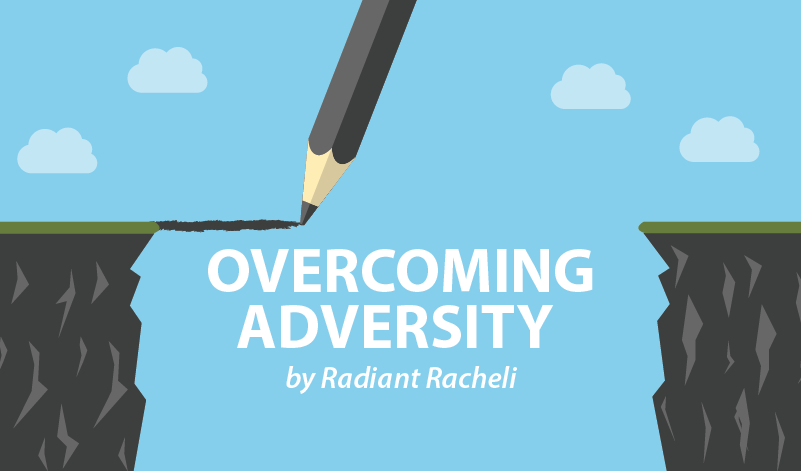While I was going through treatment for Hodgkins, I became very conscious about the fact that my diagnosis did not affect only me. As treatment progressed, I realized I was still my mother’s baby. I am her youngest child and only girl. I was her prized possession. She’s known me for 23 years, and in many instances, I am her best friend.
The news of hearing that I had cancer probably was just as, if not more, heart-breaking for her. I know for a fact that me losing my hair and having to find clumps of it around the house was more traumatizing for her than it was for me. The same goes for my brother.
He has known me for 23 years as well. I was am his baby sister, and in many cases, I’m his best friend, too! My brother drove me to almost every single chemo and sat with me while I got my infusion. I know it was not easy for him to see his little sister have liquid injected into her veins from a bag that had a skull and crossbones on it. I know that it was exhausting for him to be “on” and entertain me while I was having low moments.

When people offer support during a cancer journey, the support is directed toward the patient. But, as a patient, I see the importance of also providing support for the caregiver. It is so crucial that the caregiver be in the best mental and physical shape in order to provide the best care for the patient. Energy transfers, and if one is not cared for, that will exemplify onto the patient.
I’d love to offer you 5 ways that you can care for a caregiver.
- Offer to help around the house
While this may seem minuscule, those few extra hours of kicking their feet up is crucial to their mental state. It is so incredibly overwhelming to work, clean, care, and cook, while also taking care of a loved one’s health – especially if they are doing it alone. Offering to come over and help around the house is beyond generous and most likely would be appreciated. Just remember to let whoever you are helping know that you are coming in advance. - Provide space for judgement free vents
A cancer diagnosis is stressful for all parties involved – especially caregivers. Provide a safe space for the caregiver to vent freely. There are things going through their mind that you may not understand, and that is okay. It is just important for caregivers to have a judgment free space to be able to share these thoughts. - Remember that you don’t need to make everything okay
While I am quite the advocate for positivity, sometimes it’s okay not to be okay. Listen to what they have to say and validate that what they are going through is so hard. They are right in feeling whatever kind of emotions are brewing in them. Figure out ways to guide the caregiver to the positive space without pushing it on them - Instead of asking “What can I do?” offer specific forms of help, like cooking or shopping
While the gesture may totally be there, in instances where you ask an open-ended question the family and caregiver may not have a specific response. Ask close-ended questions that won’t make the caregiver and their family feel uncomfortable. Massages are always a good thing to offer! - Make them feel included
Although your extended invites may go declined, it is so important to continue to invite them and reach out. Feeling as if their caregiver status caused them to lose friends can be hurtful. Just knowing that people are thinking and wanting to help makes all the difference. Caregiver life is isolating. Just because they are not always reciprocating your text or calls, doesn’t mean your messages aren’t important to them.
 With these gestures, I can promise you that their experience as caregivers will improve significantly. My most important tip is to remember to extend these gestures, and to be there after the beginning. The beginning of a cancer diagnosis is always the most exciting, and it always warrants the most crowd support, but it’s when you get to the halfway point that the isolation really creeps up. I urge you to remember that, and think about when and how you offer your support. Most importantly, on behalf of all caregivers, I thank you for reading this in hopes that you can be of service and support to the caregivers in your life.
With these gestures, I can promise you that their experience as caregivers will improve significantly. My most important tip is to remember to extend these gestures, and to be there after the beginning. The beginning of a cancer diagnosis is always the most exciting, and it always warrants the most crowd support, but it’s when you get to the halfway point that the isolation really creeps up. I urge you to remember that, and think about when and how you offer your support. Most importantly, on behalf of all caregivers, I thank you for reading this in hopes that you can be of service and support to the caregivers in your life.
***
Note: Lymphoma News Today is strictly a news and information website about the disease. It does not provide medical advice, diagnosis, or treatment. This content is not intended to be a substitute for professional medical advice, diagnosis, or treatment. Always seek the advice of your physician or other qualified health provider with any questions you may have regarding a medical condition. Never disregard professional medical advice or delay in seeking it because of something you have read on this website. The opinions expressed in this column are not those of Lymphoma News Today, or its parent company, BioNews Services, and are intended to spark discussion about issues pertaining to lymphoma.



